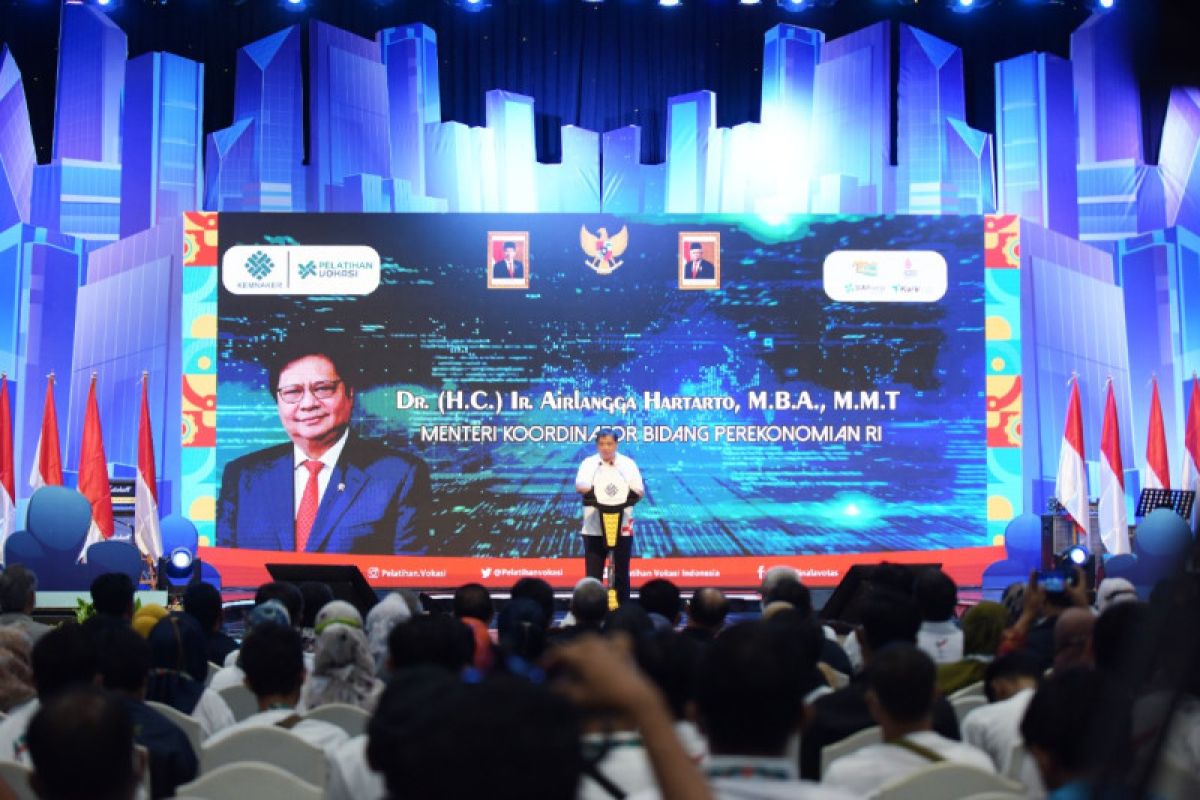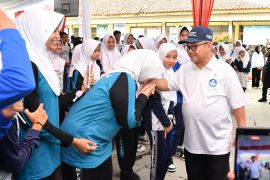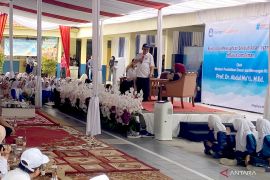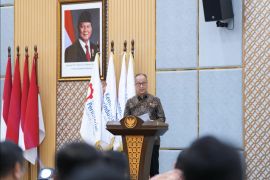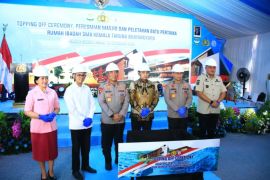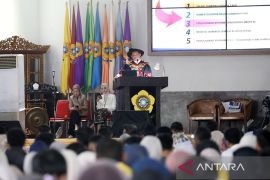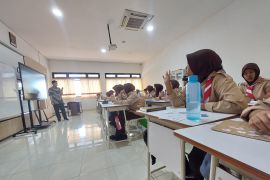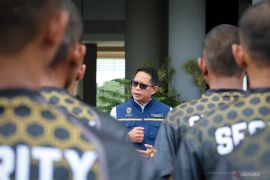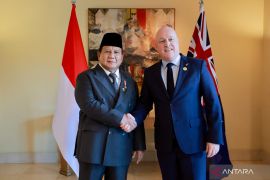If prepared properly, Indonesia's workforce has great potential to accelerate national economic development so that the workforce is expected to prosper before they get old.Jakarta (ANTARA) - The government has continued to make efforts to improve human resources (HR) and develop vocational education in order to achieve inclusive and equitable development across Indonesia.
The efforts have been made in order to take advantage of the demographic bonus in Indonesia: the country currently has 70 percent of the population in the productive age group, with a workforce of 144 million people.
Coordinating Minister for Economic Affairs Airlangga Hartarto in a statement here on Monday, said well-prepared human resources had a great potential for accelerating national economic development.
"If prepared properly, Indonesia's workforce has great potential to accelerate national economic development so that the workforce is expected to prosper before they get old," he added.
Related news: Stunting audit would prove useful for extreme poverty reduction: BKKBN
Vocational education and training need to complement the industry, such as being connected to the labor market information system, the minister highlighted.
Further, vocational training is related to re-skilling and up-skilling for the future, especially in the changing world of work, he noted.
So life-long learning is necessary, he added.
To face various challenges, the Ministry of Manpower, as the coordinator of vocational training, needs to continue to work with elements from the central government, regional governments, and the Business and Industrial World (DUDI).
Hartarto said that he expects vocational training to play an important role in developing human resources in the future.
The effort is in line with the government's policy outlined in Presidential Regulation Number 68 of 2022 concerning the revitalization of vocational education and vocational training.
Related news: Ministry bolsters vocational education in pursuit of competitive HR
The government is also offering Super Tax Deduction incentives to companies that participate in vocational activities, such as granting apprenticeships, work practice, and deploying industrial teachers, among others, with the maximum tax deduction set at 200 percent of the total costs incurred by the Business and Industrial World (DUDI) for vocational activities.
The coordinating minister lauded the steps taken by the Ministry of Manpower, which has continued to encourage the improvement of the quality of human resources and labor productivity through the implementation of vocational training.
He also praised vocational training personnel, DUDI, and all other stakeholders who have played a role in developing vocational training in the country.
Related news: Preparations of superior human resources national priority: ministry
Related news: Inadequate human resources, budget challenges to SDG data provision
Translator: M Heriyanto, Azis Kurmala
Editor: Fardah Assegaf
Copyright © ANTARA 2022
